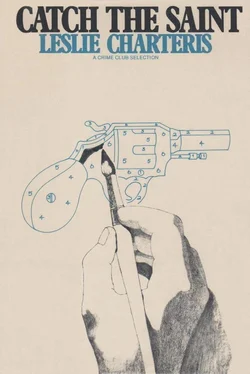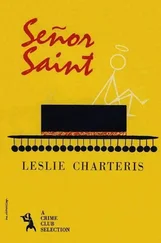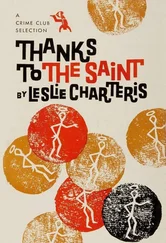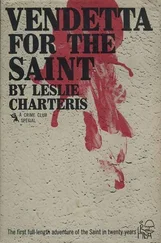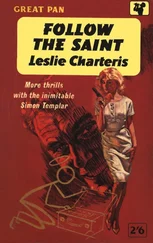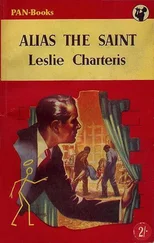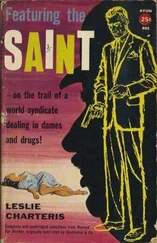His knowledge of Philadelphia geography was minimal, and he let her direct him through rain-wet streets for something over twenty minutes in a direction that began well enough but became progressively more sordid, until they turned a corner close to some pretzels of garish red neon a little down the block which proclaimed the exotic ambience of SAMMY’S BOOZE & BILLIARDS.
Carole pointed.
“Let’s go in there.”
Simon’s brows slanted in a half rise, half frown. But he slowed up and pulled over to the kerb, not directly under the twisted neon but not many yards beyond. As they passed, he observed that to enhance the inspired title of the place there was an ornamental drunk sleeping propped up beside the entrance.
At that hour there was hardly any traffic, and finding parking space was not the problem.
“It looks delightful,” Simon said, “but I thought we were hunting for some place quiet and cosy.”
“I love slumming,” Carole said. She suddenly snuggled up against him and looked up fiendishly into his eyes. “You’re not scared to take me in there, are you?”
“I’m sure you’ll protect me,” Simon drawled. “On the other hand, I’m sure you must know a place or two that might be a little more romantic.”
“I’ve never felt more romantic in my life,” Carole insisted. “And I can’t imagine anything that would bore me more than one of those conventional all-night supper clubs.”
And so, against his better judgement, Simon Templar found himself escorting Carole Angelworth into Sammy’s Booze & Billiards on a particular night at a particular time, which proved once again that even in his most off-guard and idle moments the Saint could not escape the currents of destiny that sucked him involuntarily into adventure.
They tiptoed around the sloshed Cerberus couched beside the threshold, opened the door, and faced the dense dark atmosphere like a pair of divers suddenly plunged into a gloomy pond.
It soon became moderately clear that there was a bar with stools down to the right, booths along the wall paralleling it, and in a larger space to the left a pair of pool tables occupying the earnest attention of several men. Sammy’s pool-playing clientele varied from flashily over-dressed to shirt-sleeves and khakis. The trio at the nearest table fell into the flashy category — quick money, low taste. Simon would normally have regarded them as part of the furniture, but he hesitated and looked at one of them again. A look of slightly puzzled concentration came over his face, tentative recognition mixed with uncertainty.
The Saint’s brain had a fantastic capacity for keeping vast quantities of stored information available for conscious recall. Thousands of faces, names, aliases, and case histories swarmed beneath the surface of his everyday awareness, ready to be netted and re-examined on an instant’s notice. The very fact that Simon hesitated at all after spotting a face that looked vaguely familiar meant that the identity belonging to the face had never played an important part in his own experience. But Simon’s natural inquisitiveness, and his dislike of unsolved puzzles, kept him standing just inside the entrance until seconds later an invisible index flipped over in his head and matched the face. Just a name, with an undefined favourable feeling attached to it, but enough to make the Saint impulsively take Carole’s arm and step over to the pool table.
“Brad Ryner,” he said.
There had been a lull in the game, and the man to whom he spoke looked up from chalking his cue. The look was not one of friendly recognition, or even of ready interest. The other’s face — broken-nosed, ruddy, rough-skinned, surmounted by curly red hair — was immediately hostile.
“Who’re you talking to?” he asked angrily.
When confronted with animosity, the Saint’s self-imposed discipline was to relax rather than to let himself get nettled.
“To you,” he said easily. “Aren’t you Brad Ryner?”
“No, I’m not, and I never heard of him.” Fingers gripped the billiard cue so tightly that knuckles were white. “You’ve got your wires crossed, buster. The name’s Joe, and I don’t like people interrupting me when I’m trying to concentrate on a game.”
If Carole had known more about Simon Templar, she would have realised that his response was uncharacteristically apologetic.
“Sorry,” he said. “I made a mistake.”
“Okay, okay!” the other man snarled. “Do me a favour and cut out the yapping or you’re gonna wreck my concentration.”
His two companions at the table were watching him and the Saint with more interest now than at the beginning. One was a stout, bald, seal-like character with chocolate-coloured eyes and very small ears. The other had the build of a professional football tackle, but the unhealthy pallour of his skin hinted that not many of his activities took place out of doors. He scratched the back of his neck as he studied the face of the man Simon had called Brad Ryner.
Simon took Carole by the arm and moved away from the pool table.
“Nice friends you have,” Carole said in a loud voice. “Or non-friends.”
“Never mind,” the Saint said firmly, steering her to a booth at the other end of the bar. “You picked the place, so you shouldn’t be surprised to meet down-to-earth types. Or did you expect we’d be recognised and given the V.I.P. treatment?”
“That comes very close to sounding snide.”
“Nothing snide intended,” Simon said abstractedly. As he slipped into the dark booth next to the girl he could see that the three pool players had resumed their game. “I just pulled a boner, and I’m annoyed with myself.”
Carole shrugged.
“Well, anybody could mistake a face in this light, so don’t let it spoil our evening.”
“I won’t if you won’t.”
The unshaven shirt-sleeved counterman came and took their order for coffee.
“I still don’t see why he had to be so rude,” Carole said while they waited. “Or why you let him get away with it.”
“Forget it,” Simon answered. “I don’t want to talk about it here.”
They never did recapture the playfulness and gaiety of the earlier part of the evening. Simon parried Carole’s questions about his own life by drawing her out about her own. It had been a sheltered existence. Her mother had died while Carole was still a child. She had been nurtured by nannies, maids, and governesses. Her teens had unfolded trivially in a setting of sail-boats, tennis, house-parties, and debutante balls. Self-mocking, she described herself as a violet blossoming in the shade of a great oak.
The great oak was her father. He had not had her advantages when he was young, and typically he had tried to insulate her from the harsh realities which he had overcome.
“So it was rags to riches,” Simon prompted her, thinking how refreshing it was in these days to meet a rich girl who so positively and genuinely admired and adored the parent whose upward struggle had given her so much.
“Well, not exactly rags,” Carole replied. “Just the ordinary lower-middle-class slog, cutting corners and keeping a beady eye on the budget. Until he struck it rich when I was going to college. I was a spoiled brat, and for a long time I just rebelled against him, but I’ve finally gotten old enough to appreciate what he’s done. I can even admit how proud I am of him. When you have time, I’d like to show you a couple of places he’s responsible for creating.”
She turned her thick coffee-cup in its stained saucer and frowned slightly.
“Of course sometimes he goes too far. You’d think from all his law-and-order talk, and what a hardheaded businessman he is, that he’d be more careful. But he’s a great one for rehabilitating people — like that Richard Hamlin you met tonight. Richard’s an ex-convict. Embezzlement and who knows what else. But Daddy took him under his wing and made him his personal secretary.”
Читать дальше
